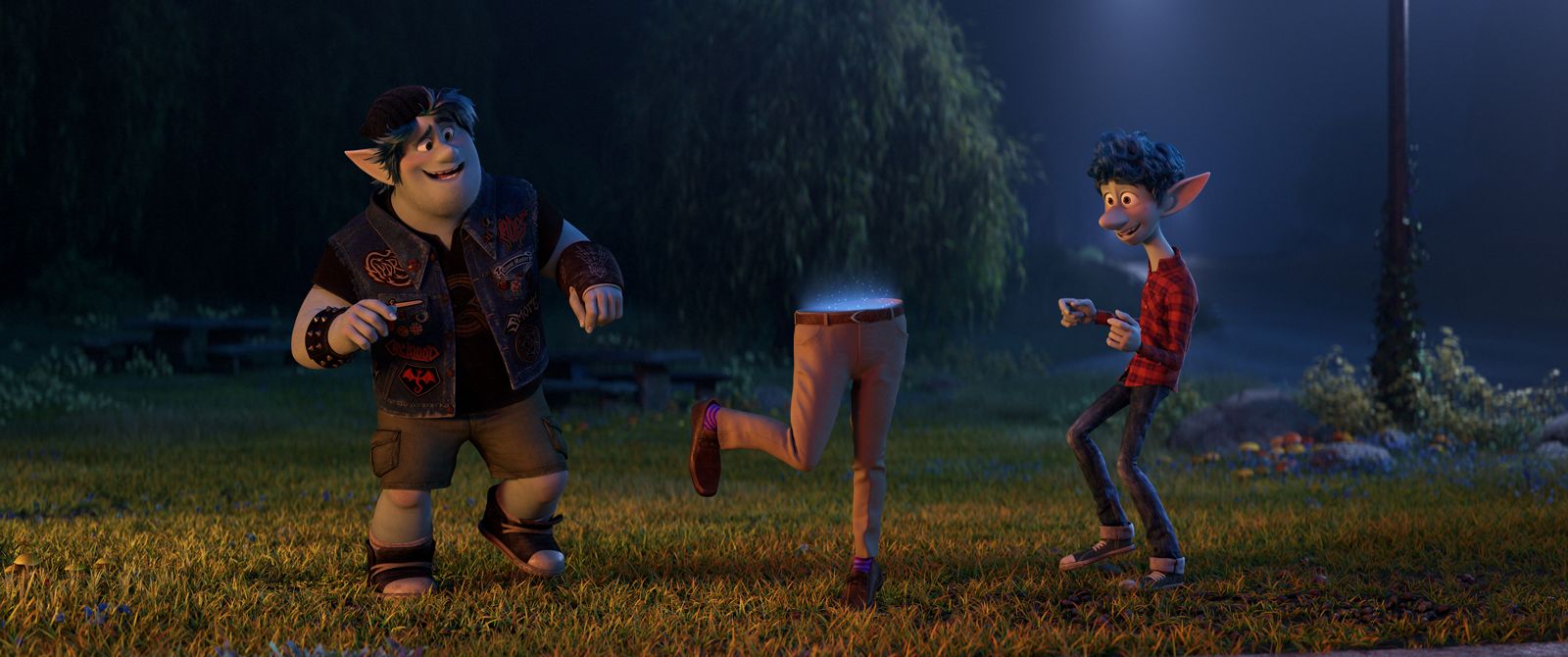By Maddy Raven, Second Year, Theatre & Film
Dealing with bereavement, brotherhood and bonding in an delicate and nuanced way, Onward (2020) earns its name by taking animated children’s cinema in a refreshing, inclusive direction.
As I walked out of the cinema after seeing Onward (2020), the friend I was with observed: “Thank God they’re finally producing original stories”. I agree - Onward is refreshing, despite the fact that it’s primarily about family bereavement. It’s focused on the relationship between brothers, and does not attempt to force romance into the narrative in order to make the film more ‘accessible’.
As someone who has had a close family member pass, I found the film very accessible. Onward is an example of a film which shows a film industry learning to decanter what we think of as the ‘typical’ experience, and beginning to explore complex relationships which go beyond heterosexual romance.

Onward is the story of Ian, an elf, who on his sixteenth birthday finds that his dead father left him and his older brother Barley a present to open once they were both of age. They’re presented with the opportunity to spend one last day with their father, but when the spell goes wrong, they’re left with a pair of legs. What ensues is an ‘epic quest’ - Barley’s words, not mine - to try and fix their mistake and spend the day with their father.
It is a refreshingly original and silly take on magic, which appeals to all ages. It bears a strong resemblance to Coco (2017) in that it is the story of a family in a world which is muted, and where magic is almost gone. It must be rediscovered, along with the celebration of familial love. It’s clear from the outset that this is a quest, and the boys refer to it as such.
It is a refreshingly original and silly take on magic, which appeals to all ages
Older brother Barley, who is on the ‘longest gap year ever’ is obsessed with quests and magic, and is widely dismissed as a ‘screw up’ by the people around him. Though the main quest appears to be in search of their father’s top half, it is also a journey to rediscover their bond as brothers in a family without a father figure.

The emphasis on the relationships between brothers and fathers is wonderful: the absence of the toxic masculinity which we sometimes see on screen is noticeable, leaving room for tender heartfelt moments. Both boys are openly yearning to see their father: Ian grows up with no memories of him, and Barley has four memories of him, including the day he died.
Emma adds a sexy spin to the story’s simpering staleness
Though Onward seems oddly specific, in that it is primarily about brothers grieving a father’s death, not something everyone can relate to, some relief is offered by the ‘side-quest’ of their mother and the manticore who pursues them in order to save them. And besides, I know that personally, I appreciated seeing a non-conventional family model that included bereavement. It’s very difficult for those who haven’t gone through this to understand how conventional relationships shift in order to compensate for grief and missing family members. So, watching Barley up on screen, I felt very seen, and I didn’t care that it was a kids’ Pixar film.
Featured - IMDb / Disney/Pixar
What did you think of the approach that Onward took in tackling tough topics? Let us know!








